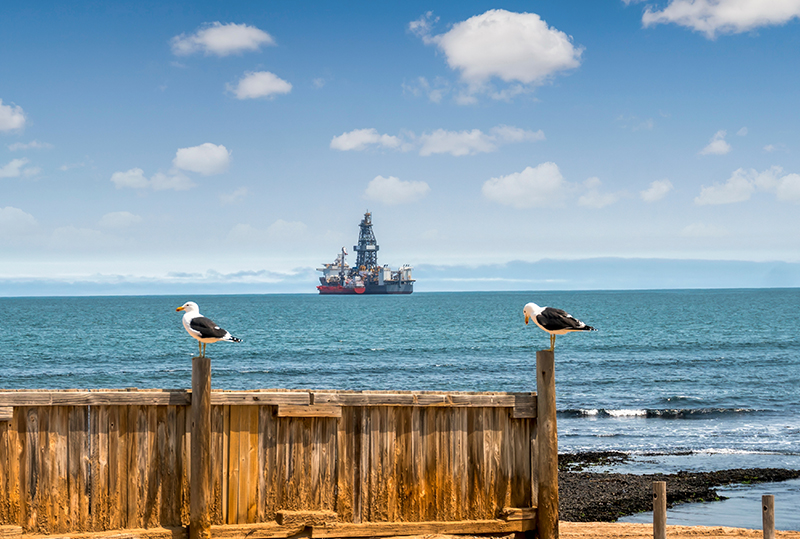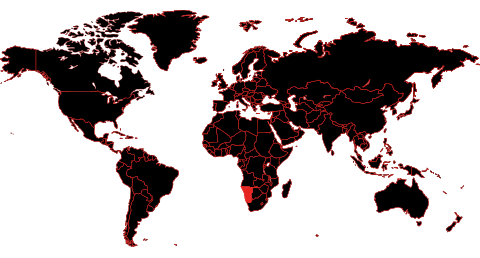The Namibia Oil Boom
A New Era for Namibia’s Energy Industry
For decades, Namibia’s economy has been shaped by diamonds, uranium, and tourism. While these sectors have contributed to national growth, they have not positioned Namibia as a major player in the global energy landscape. However, in early 2023, a major shift occurred—one that could redefine the country’s economic future.
The Jonker-1X oil discovery, made by Shell, QatarEnergy, and NAMCOR, is not just another oil find—it is a geopolitical and economic turning point. This discovery confirms that Namibia is not only an oil frontier but a serious emerging player in the global energy market.
For those unfamiliar with Jonker-1X and its significance, this article will break down:
• What Jonker-1X is and why it matters.
• How this discovery fits into the bigger picture of Namibia’s economic and political transformation.
• The strategic decisions Namibia must make to ensure long-term benefits from its oil wealth.
Understanding Jonker-1X: The Discovery That Changed the Game
Jonker-1X is an offshore oil well located in Namibia’s Orange Basin, approximately 270 kilometers from the coast. In early 2023, Shell, alongside QatarEnergy and the National Petroleum Corporation of Namibia (NAMCOR), confirmed the presence of light oil in commercial quantities at this site.
This discovery is part of a string of successful exploration wells drilled in Namibia’s deep waters. The Jonker-1X well follows two earlier finds:
• Graff-1X (2022) – The discovery that first put Namibia’s offshore potential in the spotlight.
• La Rona-1X (2022) – A further confirmation that the Orange Basin contained a working petroleum system.
Jonker-1X was the third major strike, proving that Namibia’s offshore resources were not isolated pockets of oil but part of a larger, commercially viable petroleum system.
Why is Jonker-1X a Game Changer?
• A Pattern of Success – The discovery reinforces Namibia’s position as a high-potential oil producer. Three significant finds in a row indicate that Namibia’s deepwater reserves could be substantial.
• A Working Petroleum System – Jonker-1X proves that Namibia’s offshore geology contains not just oil but commercially recoverable volumes, moving the country closer to production.
• Global Energy Market Impact – With Europe and Asia looking for new, stable oil suppliers, Namibia’s discovery comes at a strategic moment in global energy politics.
“The question is no longer whether Namibia has oil—but rather how much, how soon, and who will benefit.”
The Bigger Picture: What Jonker-1X Means for Namibia
Jonker-1X is about more than just oil—it represents a shift in economic power, investment flows, and geopolitical positioning.
A. Namibia’s Global Energy Status is Changing
For decades, the focus of Africa’s oil industry has been on countries like Nigeria, Angola, and Libya. However, geopolitical and economic shifts are opening doors for new energy players, and Namibia is one of the biggest emerging frontiers.
• European Energy Demand – With Europe reducing dependence on Russian oil and gas, new suppliers like Namibia are becoming strategically important.
• China’s Influence in Africa – As China continues its energy partnerships in Africa, Namibia could become part of Beijing’s broader oil and gas supply chain.
• Big Oil’s Africa Strategy – Companies like Shell, TotalEnergies, and Galp are shifting focus to high-potential deepwater reserves, and Namibia is now a key area of interest.
Namibia now has geopolitical leverage, which means it must carefully negotiate how it manages international investment and energy partnerships.
B. An Oil Boom or an Oil Trap?
While Jonker-1X promises economic benefits, history has shown that oil wealth does not automatically translate into national prosperity. Many countries have fallen into the resource curse, where oil revenues fuel corruption, inequality, and economic instability instead of sustainable development.
Jonker-1X presents both opportunities and risks:
The Opportunity: Economic Growth and Industrialization
✔ Foreign investment will fund infrastructure, oil exports, and job creation.
✔ The discovery opens doors for local businesses to participate in oil services and logistics.
✔ Revenues can be reinvested into education, healthcare, and industrial diversification.
The Risk: The Resource Curse
✖ Without strict financial oversight, oil wealth could be mismanaged.
✖ If foreign companies dominate oil extraction, Namibia risks losing control of its own resources.
✖ Over-reliance on oil could weaken other industries, leaving the economy vulnerable to price shocks.
C. The Key to Success: Strategic Oil Management
For Namibia to maximize its oil wealth, it must:
• Develop strong local content policies that require international oil companies to hire Namibian workers and partner with local businesses.
• Ensure revenue transparency through publicly audited financial reports on oil revenues and expenditures.
• Reinvest oil income into long-term projects such as education, infrastructure, and industrialization.
If managed correctly, Jonker-1X could serve as the foundation for long-term national wealth—but it will require discipline, governance, and smart policy-making.
The Next Steps: What Happens After Jonker-1X?
Jonker-1X is not the finish line—it’s the beginning of Namibia’s oil journey. The country must now move from discovery to development and production.
Shell & QatarEnergy’s Next Moves
• Appraisal drilling will continue to determine the full extent of oil reserves.
• Technical teams will evaluate commercial viability—how much oil can be extracted profitably.
• Discussions with the Namibian government will shape investment terms and production timelines.
What Namibia’s Government Must Do Next
• Finalize a long-term oil and gas policy that prioritizes local benefits.
• Negotiate strong revenue-sharing agreements to ensure oil wealth is reinvested.
• Build refining and processing infrastructure to move beyond crude oil exports.
The next five years will be critical in determining whether Namibia becomes a global energy leader or just another extraction site for foreign corporations.
References
• Shell Press Release (Feb 2023). “Jonker-1X Light Oil Discovery in Namibia’s Orange Basin.”
• NAMCOR Official Statement (Feb 2023). “Third Consecutive Offshore Oil Discovery Strengthens Namibia’s Position.”
• Reuters (Feb 2023). “Shell, QatarEnergy, and NAMCOR Strike Oil in Namibia’s Deep Waters.”
• Bloomberg Africa (Mar 2023). “How Jonker-1X Discovery Puts Namibia on the Energy Investment Map.”
• International Energy Agency (2023). “Africa’s Emerging Oil Frontiers: Potential and Policy Recommendations.”
Earth Day 2025 – Our Power, Our Planet
“Our Power, Our Planet” — the theme of Earth Day 2025 — is not just a rallying cry for envir
Positioning Namibia’s Youth at the Center of Its Energy Future
Namibia stands at a pivotal moment in its national development, faced simultaneously with a signific
What Every Namibian Student and Entry-Level Professional Should Know About the Upstream Oil & Gas Sector
The upstream oil and gas industry in Namibia is no longer a theoretical possibility—it is a rapidl




